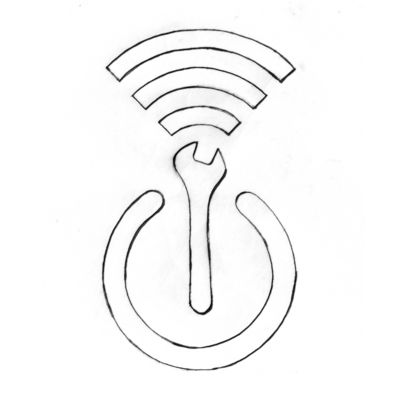A bi-weekly talk show by The Restart Project, plus a monthly documentary series produced by brilliant podcaster Dave Pickering, based on fixing triumphs, heartbreaks and wisdom shared at our community repair events – called Restart Parties – here in London. We go into real depth about good and bad design, obstacles to repair of electronics, emotional aspects of ownership, environmentally irresponsible business models, and the “end of life” of our gadgets. This podcast is for you if you'd like to fix your relationship with electronics. Let’s rethink, restart.
https://therestartproject.org/podcast/
Restart Radio: What does Bitcoin mining mean for the environment?
The soaring value of Bitcoin has been all over the media recently. But what is Bitcoin, and – more importantly to us – what is the environmental cost of ‘mining’ it?
Bitcoin is the largest of a series of emerging ‘cryptocurrencies’ – forms of digital currency that operate by way of decentralized networks. Because users are not identified by their name, but instead by their ‘public key’, they originally attracted media attention as a means of conducting illegal business. Now, however, the enormous profit made by those who invested at Bitcoin’s birth has drawn in more mainstream attention.
What makes cryptocurrency distinct from other banking systems is that it uses ‘peer to peer’ transactions, which are validated by the community, rather than by a central body. The technology behind it is the ‘Blockchain’ – which is essentially a public ledger of all transactions ever made. Sets of transactions are validated in ‘blocks’, and then added to the chain.
The process of mining new bitcoin is actually the process of validating blocks of transactions, which requires miners – or groups of miners – to compete to solve a complex mathematical problem. When the problem is solved, the winning miner is rewarded with bitcoin, and the block is added to the blockchain.
The intensely complicated system by which Bitcoin works has meant that the discussion surrounding it has tended to be dominated by those who understand it: usually, this means investors. But the growing phenomenon of cryptocurrencies is not just relevant to people who have bought bitcoin – it is relevant to all of us.
At Restart, we’re interested in the environmental impact of technological systems – including those that are all but invisible. The internet, for example, is something that people rarely think of as having any material reality. But as we explored in a previous podcast episode, the data centres that power the internet involve huge amounts of hardware that require large amounts of energy to both manufacture and to power.
Bitcoin, far from being an immaterial currency, has a real environmental footprint. This is because huge amounts of energy are required to solve the complex mathematical problems in order for miners to add a block of transactions to the blockchain. It is based on probability, so the larger the number of computers working at it at once, the more chance the miners have of “winning” Bitcoin. As Bitcoins value increases, so does the difficulty of this problem, and so does the energy that is being poured into solving it. The very language used to describe Bitcoin – involving ‘blocks’ and ‘miners’ – points to the real material processes that underpin its highly unpredictable operating processes.
There are many estimates floating around about the total environmental impact of the entire Bitcoin network – some say that it is as great as the entire country of Denmark, and set to increase. Not to mention other cryptocurrencies, such as Ethereum, which are using similarly ludicrous amounts of power.
Like traditional internet data centres, these mines also require huge amounts of energy to cool, and equipment is discarded often in favour of newer models with higher processing power. Estimates about their energy consumption, then, must also be considered in light of their embodied impact: the resources going into manufacturing the hardware itself.
Some supporters of Bitcoin praise it as a disruptive technology with the potential to undermine the banking systems that have come increasingly under scrutiny. But we wonder whether its decentralised format is destined to remain that way. The fact that these networks are dependent on such large amounts of power may result in their increased centralization, as more and more mines crop up in areas where electricity is cheap and abundant. And while some projects aim to address Bitcoin’s power consumption by using renewables, lots of mining facilities are powered by energy coming from fossil fuels. Last but not least, we also wonder whether the mathematical problems that need solving for mining bitcoins could be more “useful”, by addressing real computing needs.
Blockchain technology undoubtedly has many applications beyond cryptocurrencies. Like any technology, it is neither inherently ‘good’, nor ‘bad’. It depends on how we use it. We will continue to examine this topic as it unfolds, remembering that there is no such thing as an immaterial technology, and that everything comes at a cost.
Links:
- Brett Scott: how to explain Bitcoin to your grandmother
- The Restart Podcast Ep. 22: Greening the Internet
- Motherboard: Bitcoin could consume as much energy as Denmark by 2020
- Grist: Bitcoin could consume as much energy as the entire world by 2020
- Quartz: The largest Bitcoin mine in the world
- The Register: Scarbucks wifi customers taken advantage of to mine alt-coins
- Wired: The Hard Math behind Bitcoins Global Warming Problem
[Feature image “Bitcoin” by Flickr user Stock Catalogue is licensed under CC-BY 2.0.]
The post Restart Radio: What does Bitcoin mining mean for the environment? appeared first on The Restart Project.
